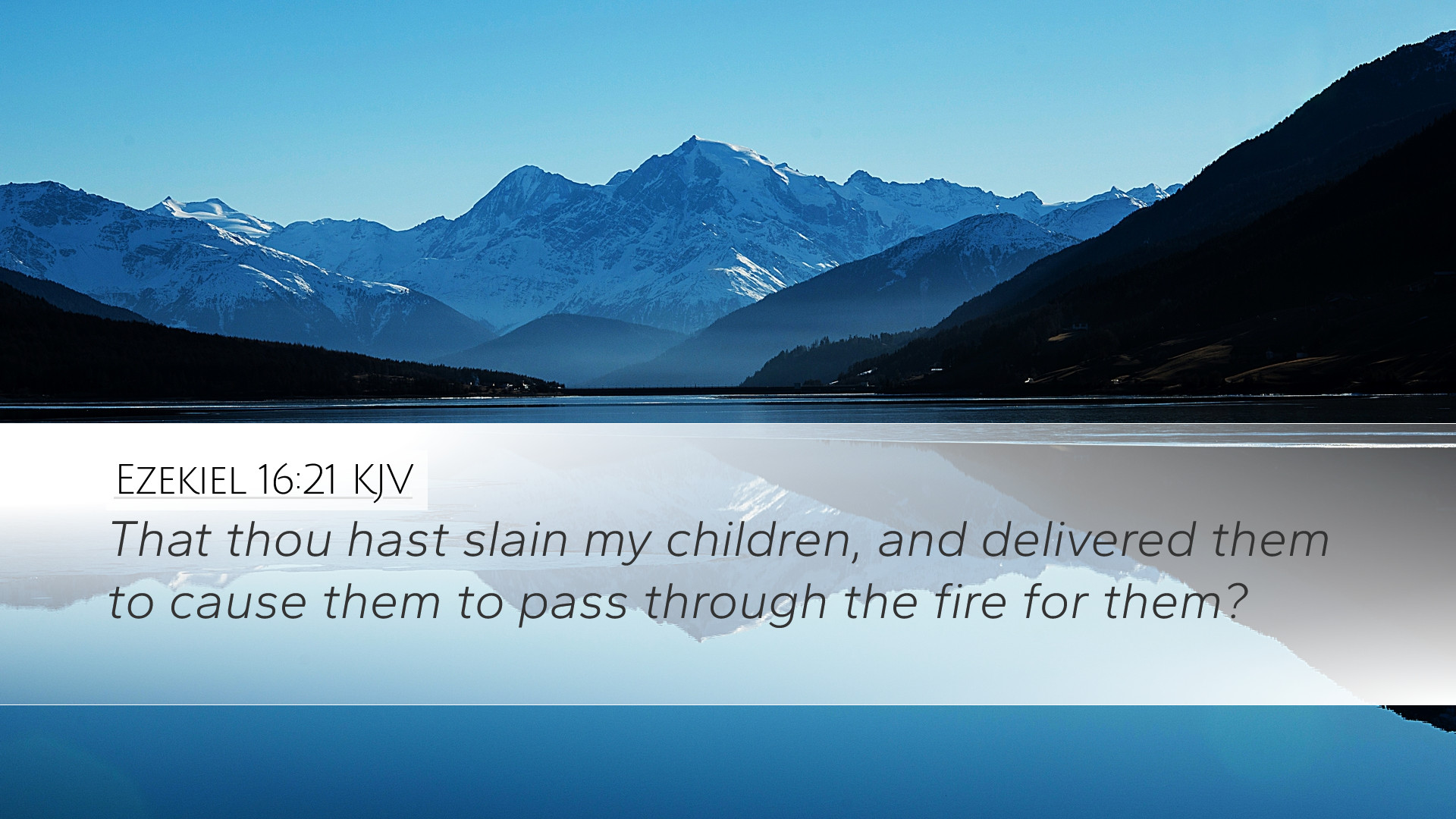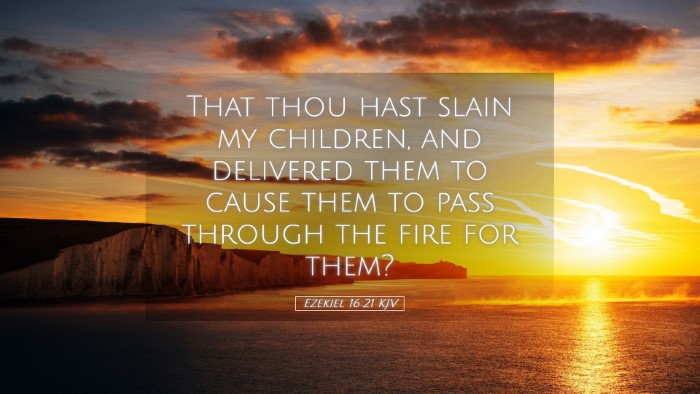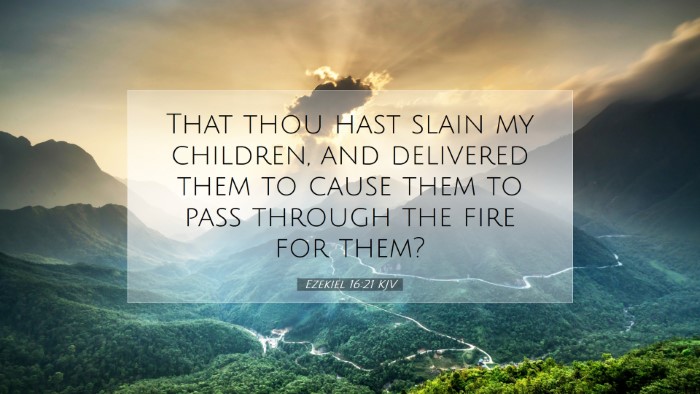Ezekiel 16:21 - A Commentary
Verse: "And you have slain my children and delivered them to cause them to pass through the fire for them."
Introduction
The book of Ezekiel is rich in imagery and profound in its critique of Israel's spiritual infidelity. In Ezekiel 16, the prophet employs the metaphor of an unfaithful wife to illustrate the covenant relationship between God and His people. This particular verse, Ezekiel 16:21, encapsulates the severity of Israel's actions against the covenant and the consequences thereof.
Contextual Analysis
In the context of this chapter, God is speaking through Ezekiel to remind Israel of their origins and ungratefulness. They were chosen, nurtured, and brought to a place of prosperity by the Lord. However, instead of being faithful, they turned to idolatry and wicked practices, including the horrific act of child sacrifice.
Matthew Henry's Perspective
Matthew Henry emphasizes the profound sorrow of God over His people's rejection. He remarks that the "slaying of children" refers to the abominable acts done in worship of false gods, particularly Molech, to whom post-biblical texts confirm child sacrifices were made. Henry points out that this act reflects a deep moral corruption and shows the extent of Israel's betrayal against their covenant with God.
According to Henry, God's children, symbolized in this verse, are not merely physical offspring but also reflect the consequences of idolatry leading to the loss of divine favor and protection. He correlates this moral failing with the notion of covenant unfaithfulness, a recurrent theme throughout the scriptures.
Albert Barnes' Commentary
Albert Barnes focuses on the theological implications of child sacrifice in ancient Israel's religious practices. He interprets the phrase "delivered them to cause them to pass through the fire" as a vivid illustration of how idolatry directly contravened the laws set forth by Yahweh, which forbade such practices. Barnes asserts that God’s condemnation of these actions symbolizes a profound rejection of true worship in favor of debased practices.
In Barnes’ analysis, he notes that God’s description of this act is meant to evoke a visceral response from His people, emphasizing that their sins have led to grievous outcomes not only for themselves but for the next generation, illustrating a profound betrayal of divine trust.
Adam Clarke's Interpretation
Adam Clarke provides a nuanced understanding of the cultural context surrounding the worship of Molech. He points out that the act of sacrificing children was a perversion of worship, reflective of a heart turned away from the true God. Clarke suggests that such acts were often believed to secure favor or fortune from the gods, yet they led to ultimate moral decay and societal collapse.
Clarke further explains the significance of the fire mentioned in the verse, linking it to purification rituals in pagan worship that had completely distorted the understanding of holiness and sacrifice. He stresses the seriousness of forsaking God’s commands to pursue hollow idolatry and the horror that results from such choices.
Theological Themes
- God’s Mourning: The verse shows the deep heartbreak of God, illustrating the covenant relationship where betrayal is met with sorrow rather than anger alone.
- Consequences of Apostasy: The sacrifices were emblematic of a broader apostasy that distanced Israel from their identity as God’s chosen people. This serves as a warning that turning away from God leads to not only personal destruction but also generational curses.
- The Nature of True Worship: This verse and its surrounding text call for reflection on what constitutes true worship and obedience, sharply contrasting it with idolatrous practices that demand ultimate sacrifice.
- Divine Justice: The severe nature of God’s response underscores that, while He is loving and merciful, He is also just, not permitting sin to go unpunished.
Pastoral Applications
For pastors and spiritual leaders, this passage serves as a powerful reminder of the necessity of upholding God’s standards of holiness and fidelity. It invites reflection on how the church today may be tempted to engage in practices resembling modern-day idolatry—be it in materialism, self-promotion, or cultural conformity.
The historian's account of Israel's actions urges leaders to teach the congregation about the weight of their decisions, the far-reaching implications of their actions, and the call to hold fast to Biblical convictions amidst a culture that may promote contrary values.
Conclusion
Ezekiel 16:21 is not merely a historical account but a timeless warning against the perils of forsaking God. The voices of Henry, Barnes, and Clarke remind contemporary readers that the essence of worship lies in genuine fidelity to God, callings that reflect His holiness, and the ethical ramifications of our decisions. Ultimately, as we study and reflect on such scriptures, we must remain vigilant not only in our personal faith but in the collective practice of the church to ensure fidelity to our covenant with God.


